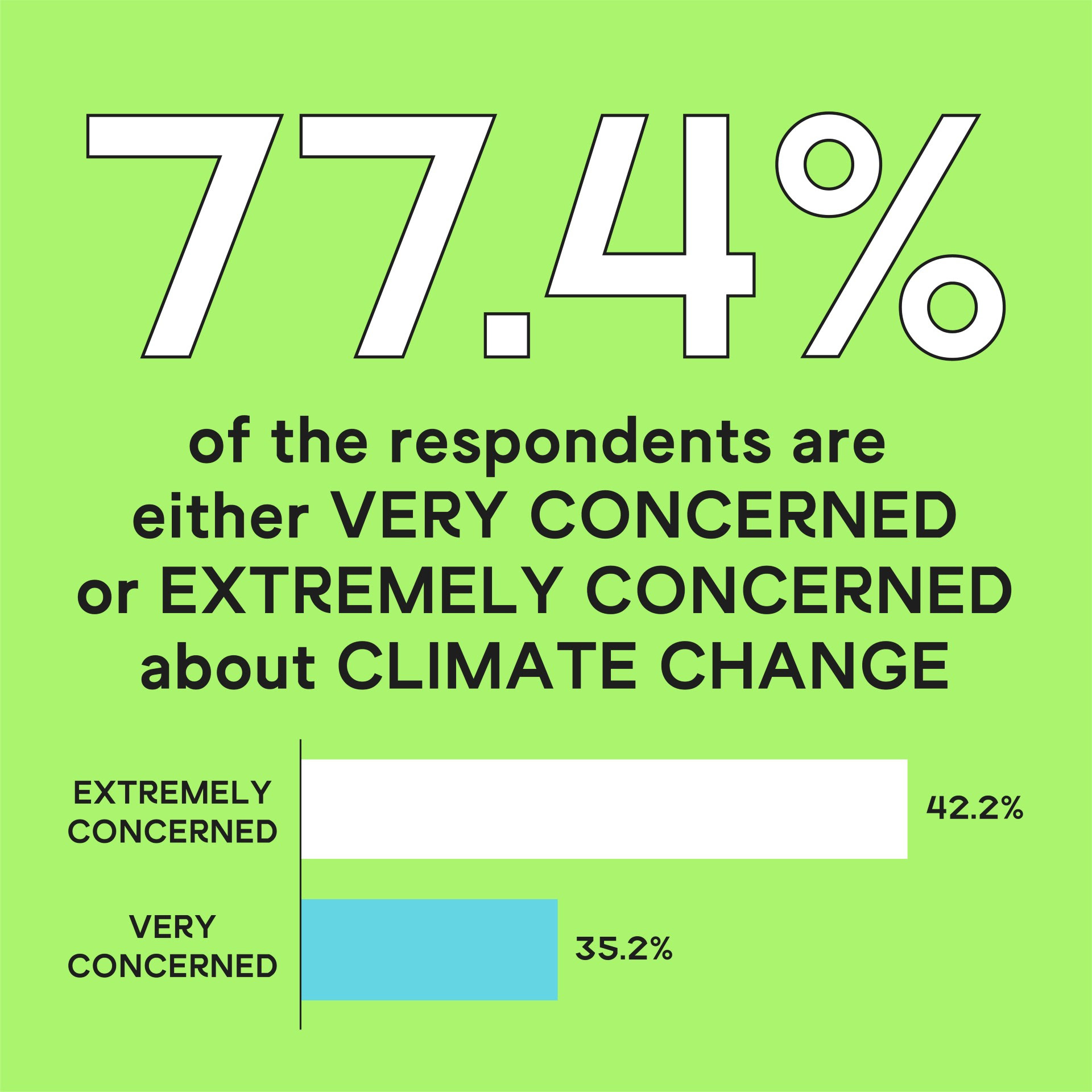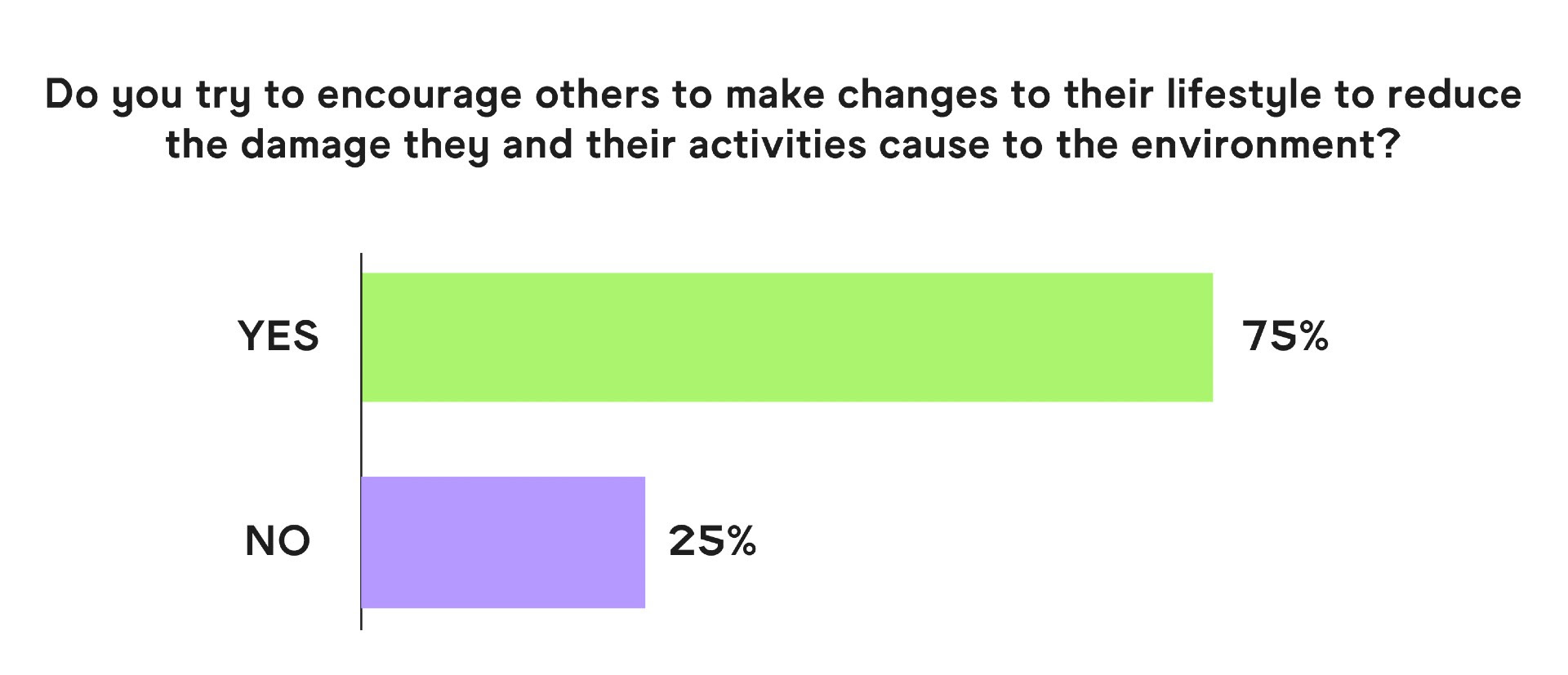Nearly 80% of our sport’s athletes are seriously concerned about the climate crisis and more than half say that climate change has already impacted them, according to a survey of athletes from 89 countries released today by World Athletics to coincide with the start of the COP26 United Nations Climate Summit in Glasgow.
The survey, conducted to gauge the attitudes and level of concern that elite level track and field athletes have about global warming, found that 77% of the respondents said they are either very concerned or extremely concerned about climate change, with a further 16% saying they were moderately concerned.

Many appear to be acting on those concerns. Eighty-two percent said they have already made changes to their lifestyle to reduce the damage they and their activities cause to the environment. More broadly, 76% said they were extremely willing or very willing to change their lifestyle to reduce their damage to the environment and 78% said they actively encourage others to adopt lifestyle changes that are more environmentally friendly.


Concern about air pollution, which annually kills seven million people globally, is also high with more than 80% saying they are concerned about air pollution.
Other findings include:
• 74% said they recycle all or most of the time
• Over half said that they have participated in environmental advocacy activities, such as tree-planting, local clean-up campaigns or protests
The survey included two groups: the first composed of 116 athletes from 59 countries who competed in the World Athletics U20 Championships in Nairobi in August and the second, 152 elite senior level athletes from 55 countries contacted by the World Athletics Athletes’ Commission and the Athletics Association. Jointly, 89 different countries were represented in the survey.
Together, 51% said that climate change has already impacted them. That number was slightly higher among the under-20 athletes, with 54% saying they have already been directly impacted. A larger proportion of those were from developing countries in Africa, Asia and South America where impacts of climate change are being felt the hardest.
Several respondents also contributed suggestions on the role World Athletics can continue to play. Some said they wanted a city’s sustainability efforts to play a stronger role in the selection of event hosts and that they wanted to see local organisers provide stronger waste management programmes that encourage less waste and more recycling.
Other suggestions included organising environmental awareness and advocacy campaigns and developing legacy programmes that encourage more sustainable lifestyles. Several also suggested appointing local and global Sustainability Ambassadors for events composed of athletes and fans.
Athletes sound the alarm in World Athletics video released today
To help amplify their concerns, more than a dozen athletes from four continents, including reigning Olympic champions Eliud Kipchoge of Kenya and Neeraj Chopra of India, contributed to ‘We can still fix this: Athlete Messages for COP26’, a powerful four-minute video released today by World Athletics. The video, comprising passionate personal messages from athletes urging others to rise to the challenge to combat climate change, will be screened repeatedly over the next 12 days at various events in both the blue and green zones at the COP26 Climate Summit in Glasgow.
“We as athletes, whether we like it or not, are role models, and we can choose to stand up for what we believe in,” said Eliza McCartney of New Zealand, the 2016 Olympic bronze medallist in the pole vault. “We can choose to stand with the scientists, the indigenous peoples and the children of our planet. We can add our voices to those saying we will not stand by and accept the irreversible damage that has happened to our planet.”
“Today, our global community has a common goal ahead of us: to save our world from the ill effects of climate change,” Chopra, the Olympic javelin throw gold medallist, said. “For this, we all need to come together and work as one team.”
“As an Olympic race walker I’ve walked my city more than anybody else,” said Canadian Evan Dunfee, who raced to Olympic bronze in the 50km race walk in Sapporo earlier this year. “I’m acutely aware of how our past decisions have literally fractured our cities, making them less amenable to active transport and directly contributing to the ongoing climate crisis.”
“The science is clear – we must act decisively to combat climate change and we must act now,” said World Athletics President Sebastian Coe. “I’m proud of the way our athletes are responding to this great global challenge. The way they’re becoming engaged in the issues. And the way they are using their voices to encourage their fellow athletes, fans and elected leaders. The message is that we must all work together for a healthy environment, for the future of our sport and the future of our planet. We should pay attention.”
The participating athletes: Luminosa Bogliolo (ITA), Neeraj Chopra (IND), Rhydian Cowley (AUS), Lisanne de Witte (NED), Evan Dunfee (CAN), Eliud Kipchoge (KEN), Eliza McCartney (NZL), Paula Radcliffe (GBR), Davide Re (ITA), Patrick Sang (KEN), Katerina Stefanidi (GRE), Christian Taylor (USA), Milan Trajkovic (CYP) and Elena Vallortigara (ITA).
Sport on the COP programme
The sports industry is taking an increasingly active role in the climate change and sustainability debate.
Several events with sport as the centrepiece will be taking place in Glasgow in both the UN-controlled blue zone and the UK government-controlled green zone. World Athletics Head of Sustainability Bob Ramsak will participate in the panel ‘How Sport Can Set the Pace for Climate Action’ in the blue zone on Wednesday 3 November from 14:00 to 14:30 GMT. World Athletics has also partnered with Sport@COP, an all-day interactive training event in the green zone for sustainability stakeholders in the sports sector, which will take place on Monday 8 November from 13:00-19:00 GMT.
World Athletics


































